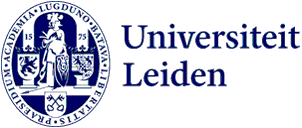Soulmates in Empire? Van Vollenhoven and the Colonial Contradictions of Grotius
On Thursday 14 October, Dr Martine van Ittersum gave the first lecture of the Van Vollenhoven Institute’s year-long workshop 'Reconsidering the Socio-Legal Gaze'. Attended by over 40 people, her lecture, entitled 'Van Vollenhoven and Grotius: Soulmates in Empire' examined Grotius’ influence on Cornelis van Vollenhoven and Grotius’ role in Dutch overseas expansion.

Dr van Ittersum is a historian who has written extensively on Grotius. She is the author of Profit and Principle: Hugo Grotius, Natural Rights Theories and the Rise of Dutch Power in the East Indies, 1595-1615. In her lecture, Dr van Ittersum traced Grotius’ connections to the Dutch East India Company, illuminating the way he crafted his legal doctrine to suit the needs of the Company through foundational texts such as Mare Liberum and defended Dutch privateering and colonial violence, such as in the Case of the Swimming Lion and the support for expansion in the Banda Islands. Contrary to the popular imagination of Grotius as the 'prince of peace', Van Ittersum argued that Grotius was a key legal architect of Dutch colonialism.
Cornelis van Vollenhoven was Professor of Colonial Constitutional and Administrative Law and of Adat Law of the Dutch East Indies, with significant contributions to the field of international law. Van Vollenhoven and his students played a key role in the collection and republication of Grotius’ manuscripts. Van Ittersum argued that, like many contemporary scholars, Van Vollenhoven failed to place Grotius within the historical context of Dutch colonialism and thereby contributed to reproducing the colonial assumptions embedded in Grotius’ vision of international law. Although Van Vollenhoven supported many of Grotius’ core principles related to the international legal order, Van Ittersum also acknowledged several areas where he departed from Grotius, promoting a strictly state-centred and rules-based international order. The lecture illuminated an often-overlooked facet of Van Vollenhoven’s legal legacy and raised important questions about how to engage with international legal principles rooted in colonial conquest.
The lecture was the first in a year-long series that aims to spark critical debates about the visions of justice and positions of power that inform Law and Society scholarship at Leiden and beyond. Two more lectures this semester by Professor Betty de Hart (25 November) and Dr Upik Djalins (9 December) will reflect on the birth of socio-legal scholarship in the context of Dutch colonial administration.
